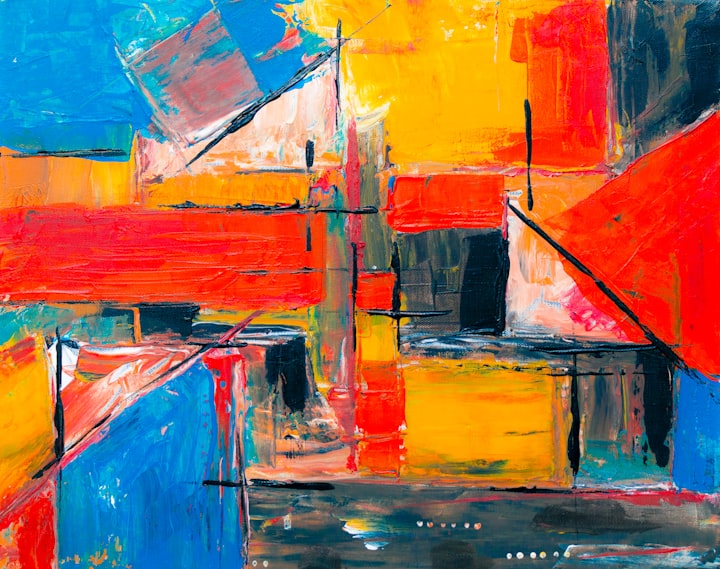This is Your Brain on Painting: Effects on Memory, Emotions, and Cognition
The drawing in your head will push you far ahead

Across multiple lands and worlds, the message appears loud and clear: meditate. Meditate.
For mindfulness is now accepted as healing for many conditions of the human psyche: trauma, internalised dysfunctions, and the all unfortunate and inevitable ageing of the brain.
Thinking of all of this helped me draw in my mind a bit of a constellation. Meditation is mindfulness (they are not the same thing, but, you know… kinda), mindfulness is at times practised through colouring-in books and sorts, colouring is part of art. Thus, can art have similar benefits to mindfulness and meditation on our brains? Sure, not the most strongly scientific bases to base withstanding assumptions on. But a good question to start from.
I did a bit of a quick search for the 500 words challenge. Here's what I found:
Apparently, neurosciences and rehabilitation medicine sustain that art has the power of impacting our brains: from emotions to brain waves and the whole nervous system. All of these effects are seen not only in people that create art but also in those that experience art. In fact, researchers have found new neural paths and ways of thinking in the latter.
More specifically, a study by the University College of London investigated through brain scans the brain of people observing famous art. When people saw art that they thought was beautiful, blood flow increased in areas of the brain associated with pleasure.
The connectivity of the brain I especially improved in artists. These masters of the visual appear also to have improved psychological resilience (though it wouldn't appear so historically, who knows).
Importantly, the act of creating art allows us to go through the doors that keep us staying the same and access new process of the brain. We become more expressive, analytic, and obtain new embodied cognition.
For some academics, the making of art is akin to making a series of consecutive decisions "what kind of drawing utensil to use, what color, how to translate what you're seeing onto the paper. And ultimately, interpreting the images - figuring out what it means." This theory evolved out of the idea that much like a software, our brain is a predictive machine which uses stimuli and pieces of information gathered from the environment and itself to decide what to do next, and what is needed (evolutionarily) to survive and grow.
Finally, much like mindfulness, it seems as painting and drawing - making art in general - have a protective effect on our minds, keeping us steps away from the scary effect of their own ageing. In people affected by dementia, painting and drawing have been shown to enable a new connection to the world, and a reconnection with memories thought to be lost.
In Conclusion:
While history and stories are full of tales of mad artists and depressed painters chopping their ears off (ifykyk), sciences tell us another story. A more comforting one. In fact, we have seen how art, both in its creation or appreciation, can make our lives better.

This love for visual art, for the beauty and the aesthetic, is taking over me. The days I had spent wondering about money, investing, productivity hacks…all long gone. Art has taken over the pressing index, art has taken over the whole mind, the whole self.
After all, the sciences too must understand through languages and symbols, the peculiar paradox for which knowledge could not be without the jump of the irrational. The spark, a moment of creativity to start the system of whatever we call logic. You tell me if I’m wrong, explain, and I shall listen.
Friend, this is our brain on art.






Comments
There are no comments for this story
Be the first to respond and start the conversation.